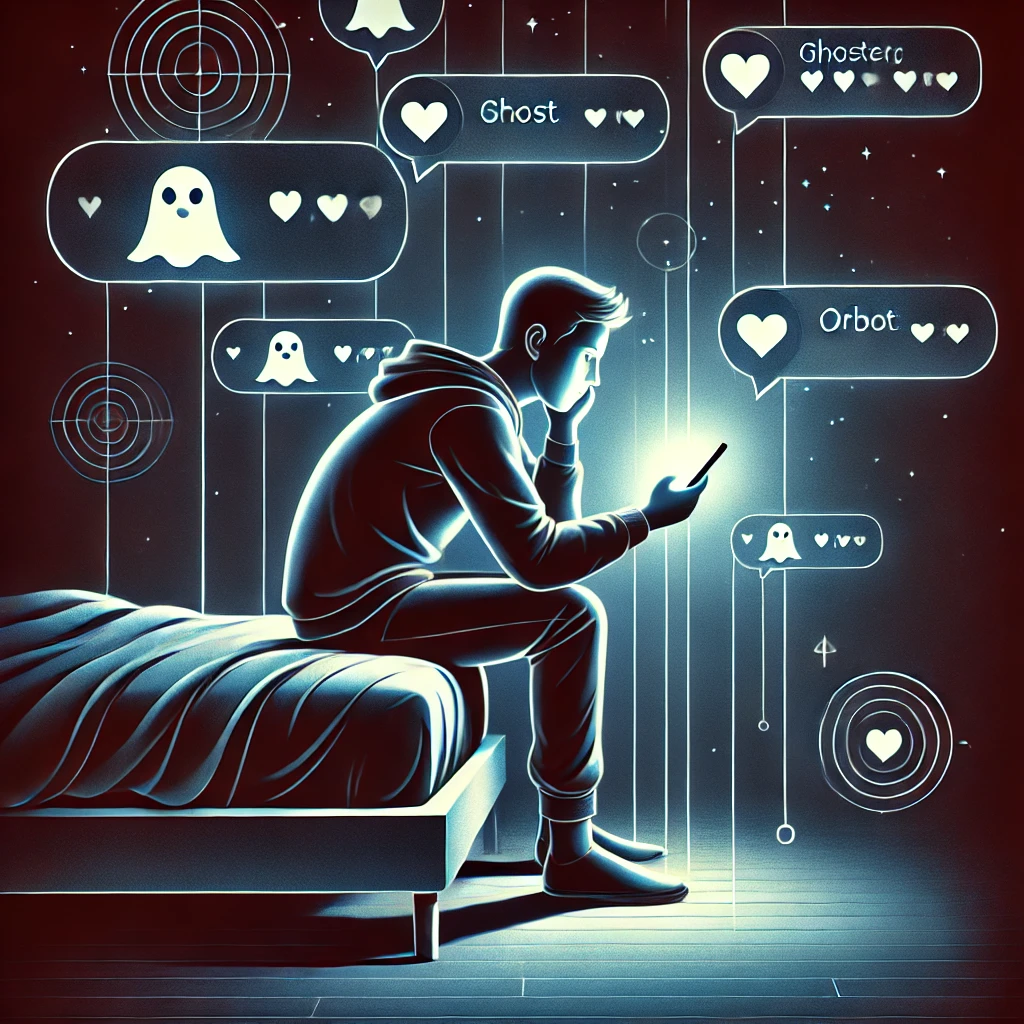
The New Rules of Heartbreak in the Digital Age
Swipe right. Match. Talk for a few days. Then—radio silence. No explanation, no closure. If this sounds familiar, you’re not alone. Digital dating has transformed how we connect, but it’s also opened the door to confusing, emotionally draining behavior.
In this article, we break down three of the most common toxic trends—ghosting, breadcrumbing, and orbiting—that have become all too common in the world of dating apps. We’ll explore why people do it, how it impacts emotional health, and how to recognize and respond to these patterns so you can date with clarity and self-respect.
What Are Ghosting, Breadcrumbing, and Orbiting?
Let’s define the big three:
- Ghosting: This is when someone you’re talking to or dating suddenly disappears—no calls, no texts, no explanation. One minute you’re chatting daily; the next, they vanish.
- Breadcrumbing: A person sends occasional messages—just enough to keep you interested—but never follows through with real effort or plans. It’s leading someone on without actual intent.
- Orbiting: After ghosting you, this person still watches your Instagram stories, likes your posts, or lurks online—staying in your digital orbit without communicating directly.
These terms emerged as dating apps became the norm, where short attention spans and endless options are built into the experience. The behavior isn’t new—but the technology makes it easier and more frequent.
Stat to consider: A 2023 Pew Research study found that 46% of dating app users have been ghosted at least once.
Why Are These Toxic Behaviors So Common?
Several factors fuel these trends:
- Endless choices: Apps offer a constant flow of new matches, which makes it easier to move on quickly—and carelessly.
- Avoidance culture: It’s easier to disappear than to deal with an uncomfortable conversation.
- Validation: Some use matches and messages as a quick ego boost, not genuine interest.
- Gamification: Swiping becomes a dopamine hit, not a relationship tool.
Psychologically, these behaviors often reflect a fear of vulnerability, commitment, or confrontation. The apps make it simple to act on those fears without accountability.
The Emotional and Mental Health Impact
Being ghosted or breadcrumbed can mess with your head—and your heart. These aren’t just annoying quirks; they can have real emotional consequences:
- Confusion and self-doubt: You question what you did wrong.
- Anxiety: Constantly checking your phone for a reply that never comes.
- Low self-esteem: Repeated rejection erodes confidence.
- Trust issues: Future connections feel riskier after these experiences.
Therapists liken these patterns to emotional manipulation because they create instability and uncertainty. While not always intentional, the result is often emotional damage.
Pro insight: Clinical psychologist Dr. Cortney Warren explains, “Ghosting can activate attachment trauma and deeply impact our self-worth, especially if it happens repeatedly.”
How to Spot the Signs Early
Early detection is your best defense. Here’s what to watch for:
Ghosting red flags:
- Messages slow down without reason
- Plans keep getting postponed
- They vanish after getting what they want (validation, photos, attention)
Breadcrumbing signs:
- They text just enough to stay on your radar
- Vague promises like “Let’s hang soon” that never happen
- Excuses when you suggest specific plans
Orbiting behavior:
- They stop responding but still engage with your content
- You feel watched but not acknowledged
- They come back randomly with no real explanation
Trust your gut. If something feels inconsistent or low-effort, it probably is.
How to Respond or Move On Gracefully
When you recognize these behaviors, here’s how to take your power back:
- Don’t internalize it: Their behavior says more about them than you.
- Set clear boundaries: If someone ghosts and reappears, don’t feel obligated to entertain them.
- Cut digital ties: Mute or unfollow if seeing them online triggers you.
- Focus on self-care: Journaling, therapy, or even a dating detox can help.
- Confront if needed: In some cases, closure helps—if done respectfully and without expectation.
Tip: Apps like Reflectly or BetterHelp can support your mental health during dating burnout.
Shifting Toward Healthier Dating Culture
You can’t control how others date—but you can control how you respond and what you tolerate.
- Be direct: If you’re not interested, say so.
- Be intentional: Date with purpose, not for attention.
- Be respectful: A simple message is better than a disappearing act.
Dating platforms could also do more: like warning users about ghosting behavior or rewarding consistent communication.
Conclusion: Navigating Love in the App Era
Ghosting, breadcrumbing, and orbiting are side effects of modern dating culture—but they don’t have to define your experience. Understanding these patterns gives you the power to avoid them, respond with clarity, and stay grounded in your self-worth.
Respect is still attractive. Honesty still matters. And your emotional wellbeing is always worth protecting.



